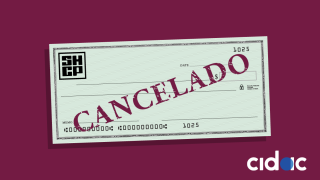Someone mindful of Giovanni Giolotti’s tumultuous political career once asked him if it was difficult to govern Italy. “Not at all”, replied the old statesman, “but it’s useless”. His response would appear to have been emitted by the old PRI. In Mexico, the old system, which can scarcely be differentiated from that of the present, went through decades administering and managing conflict to a greater extent that solving the problems and attacking their causes. The result is a rich country with poor inhabitants, enormous potential but a miserable reality. The question is whether the electoral process as it stands can yield a distinct result.
The Mexican political world is full of nostalgic figures who pine for the era during which the government had the capacity to “make decisions”, that is, to impose the will of the president. Hearing and observing these lamentations, –which come both from all parties and from many scholars- one would think that Mexico was a model nation in which everything worked well, in which progress was tangible, and in which happiness reigned throughout. Yes, Nirvana.
Unfortunately, the reality is less benign. If one observes the PRIist era from 1929 on, it took more than a decade to arrive at stabilizing the country in order to begin to focus on economic growth. Then came 25 good growth years that, however, ran out at the end of the sixties. The decade of the seventies was a disaster of crisis, inflation, and disorder from which we have yet to emerge. That is the past. Today, one party proposes to us that we return to the policies of the sixties (the one that ran its course), and another proposes a return to the seventies (the one that led the country to explode). The third proposes that we go ahead with what currently exists.
Seen retrospectively, what appears obvious is that, with some exceptional moments, in the old era everything was devoted to administering problems more than constructing a solid platform of development. The government was undoubtedly strong and overbearing and had the capacity to define priorities, to make decisions, and to act upon them. It is interesting that it did not act to construct a modern country but rather to maintain its political viability. Without doubt, there were many good years of growth; however, when the need to reform the economy was bantered about in the seventies (decades before the famous, overdue reforms began), the criterion of “better leave it be” prevailed. The result was the catastrophic tragic dozen (1970-1982): another attempt to administer problems, in this case by means of exacerbated debt and inflation.
Had that enormous concentration of power that is so yearned after today been used for good, the country at present would have income levels similar to those of Spain or Korea. After the success of that era, one would have expected that the average Mexican today would be enjoying three-fold higher lifestyle levels, that the economy would be growing with celerity, and that our political system would be a model of civility. The fact, however, is that the concentrated power served to benefit those who retained it and not the population in general. That is why there were (and are) so many politicians waiting in the wings for the Revolution to “do them justice”.
The system that managed conflicts and held these back from exploding had a great advantage over the current situation: the population perceived the government with respect, if not with fear, something clearly undesirable from a democratic perspective, but that indubitably allowed for a peaceful coexistence. The police were corrupt but crime, which was also administered, was modest; judges were subordinate to the executive branch and no one limited their capacity to act. The narcotraffickers moved drugs from South to North and the system was sufficiently powerful to demarcate limits and impose conditions. It wasn’t perfect but it conferred stability.
The gradual collapse of the old system, a process that began politically from 1968 and economically from the beginning of the seventies, in the end bequeathed a political structure that was inadequate for dealing with today’s problems (qualitatively very distinct from those of that time) and a poorly organized economy and one not conducive to the promotion of high growth rates. Additionally, at present no one fears the government or its policies; thus, it is not even possible to pretend to administer the conflict. In other words, we continue to do the dead man’s float, but now without the benefits of the past.
In this context, the attraction that many see in a potential PRI return to the presidency does not lie in that it would solve the problems (there is not a shred of evidence suggesting that this would be the goal motivating its candidate), but instead the perception that it would at least keep the engine running. That is, achieving the reestablishment of the mediocrity of yesteryear.
The truth is that what the country requires is not another PRIist, PRDist, or PANist government, but a new system of government. What is urgent is constructing the capacity necessary for it to be possible to confront and solve the problems that have been accumulating for decades and that have turned us into a society that privileges the short cut rather than the cure, “let it go” above excellence, control over participation, “it’s better than nothing” over high economic growth, stability over success, copilots over leaders.
The country requires, nothing more and nothing less, than a new State. It would be worthless to procure the reconstruction of what stopped working a long time ago, as demonstrated by forty years of failed attempts. Nor would an effective government or an amorous one work. We need one that solves the problems.
As the electoral contest evolves, we citizens should exact responses and competence, experience and innovation, ability, and, above all, vision. The very notion that everything worked well before and that it would be sufficient to return to that idyllic world sounded very good in the couplets of Jorge Manrique but does not constitute a reasonable foundation for dealing with the enormous challenges confronting the nation.
The challenge consists of constructing a different future, a process that will take years, but that has to begin now. Key to its success will be, first, clarity of project: what is required; what are its components, and how it is to be constructed. Second, a clear and competent leader, capable of visualizing it, giving it form, and bringing all Mexicans together, commencing with the politicians and their parties, in a grand national effort whose characteristic would be plurality and convergence in a common objective. And third, the capacity to articulate its diverse components: vision; human and other resources; and the capacity for political negotiation.
The country has ways out, but only if it confronts and solves its problems.
Manage vs. Solve




Comments